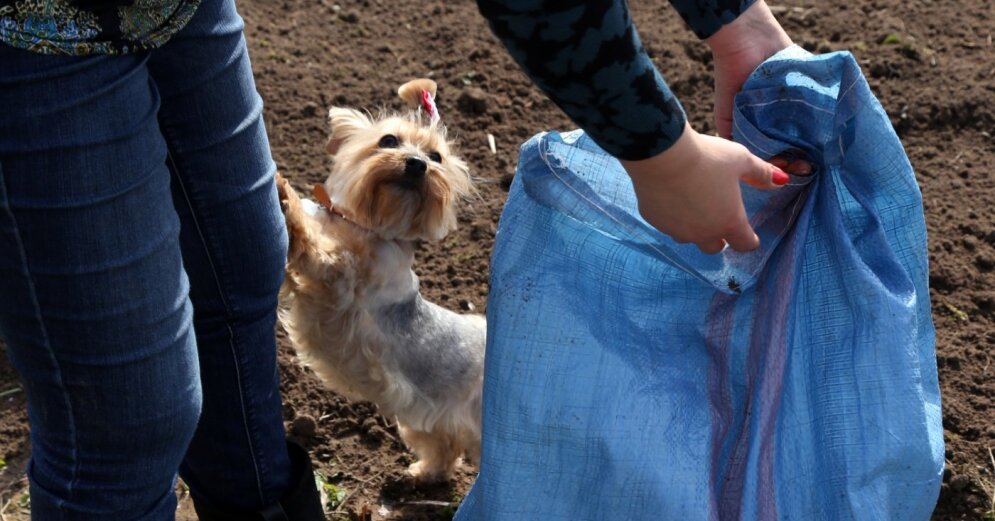This year, the Center for Disease Prevention and Control (SPKC) experts call for basic safety measures to be observed during environmental cleaning works, including mutual distance in public places, the portal “Delfi” was informed by SPKC.
–
–
Content will continue after the ad
Advertising
–
Although the restrictions have been reduced, it is important to remember that the risk of becoming infected with Covid-19 still exists, the center recalls.
SPKC specialists are advised to assess your health condition and not to take part in cleaning work if you have signs of respiratory disease (fever, cough, runny nose, etc.), as well as if you are in isolation.
When starting work, evaluate the environment in which the cleaning work is intended. Handle clean equipment and waste of unknown origin (syringes, broken glass, etc.) with care. Wear safety goggles when handling machinery and durable gloves when collecting leaves, twigs and debris.
Avoid alcohol, which is often a cause of injury.
During cleaning, watch out for children who are often injured when working with sharp objects (saws and axes). Also, allow children to care only in safe places – where there is no hazardous waste. Do not leave children unattended, especially if water bodies, wells, ditches, etc. are exposed.
Collision with syringes should be avoided
It should be remembered that among the branches, leaves and debris throwing on the ground can also be glass, debris or syringes. Therefore, special care must be taken when collecting and bagging waste by hand.
To avoid collisions, it is safest to use suitable tools for waste collection – rakes, garden forks, special accessories for sweeping waste, so that the collected leaves and other objects do not have to be taken by hand. Garbage bags should be used to collect waste, with garbage bags that are as difficult as possible to pierce, but gloves made of as thick a material as possible should be in your hands. It is important to avoid squeezing or forcing the collected garbage bags with them, as they may contain sharp objects, SPKC emphasized.
It is safest to collect syringes and needles in puncture-proof containers, such as plastic bottles, which can be unscrewed. Syringes and needles should not be disposed of with household waste, but should be disposed of where medical waste is disposed of. Syringes can also be given at HIV prevention centers. Contact information is available on the SPKC website sectionHIV prevention points“.
If you are injured during the clean-up, you should consult a doctor immediately after the accident, especially if you have been exposed to a discarded syringe or if you have not been vaccinated against tetanus. Outside your doctor’s office hours, you can consult the family doctor’s consultation number: 66016001. The phone is open 24 hours a day on weekends and public holidays. 17:00 to 08:00
Beware of ticks
When cleaning outdoors, keep in mind that the season of tick activity has begun, so when staying in untidy places (forest, bushes and meadows), clothing should be adjusted so that ticks cannot get under it: the ends of the trousers should be placed in socks, cuffs and collars , blouse or shirt should be put on pants. It is recommended to wear a hat or scarf. Clothing should be inspected from time to time, especially your feet, to see and kill ticks crawling on your clothing in a timely manner. Mite repellents can also be used by spraying clothing, but they will not protect if the clothing is not properly adjusted. When you come home, make sure there are no ticks on your body, and also check on pets. It is recommended to remove and wash all clothing that was on your back during cleaning.
If the tick is still absorbed, it should be removed as soon as possible. It is best to have it removed by a medical professional, but if you need to remove the tick yourself, take precautions: disinfect the area where it is soaked with alcohol or vodka before removing it; grasp the tick with tweezers and pull it out slowly, trying not to compress it (you can use a thread loop – wrap it around the snout as close to the skin as possible and remove the tick by pulling on the ends); To reduce the risk of infection during tick removal (including pets), as there may be microscopic injuries to the hands, it is advisable to wear rubber gloves or use a pad after disinfecting the hands.
Take appropriate food with you
Appropriate food must be chosen to take with you, the storage of which is safe, does not involve a change in temperature and cannot be perishable. Do not bring dairy and meat products, ready-made salads, egg dishes, incl. dessert, etc. Foods that show signs of spoilage should not be eaten.
Make sure you can wash your hands before eating. If running water is not available, bring other hand hygiene products, such as wet wipes, hand sanitizers. If there is any doubt about the quality of hand washing, it is advisable to take food, such as bread, with a clean paper towel or disposable fork.
Although there is not yet very strong sunlight, prolonged exposure to the sun in the spring can be dangerous. To protect yourself, it is advisable to wear a hat and drink water from time to time when working outside.
It is reported that Spring cleaning will take place on April 30 this year.
–


